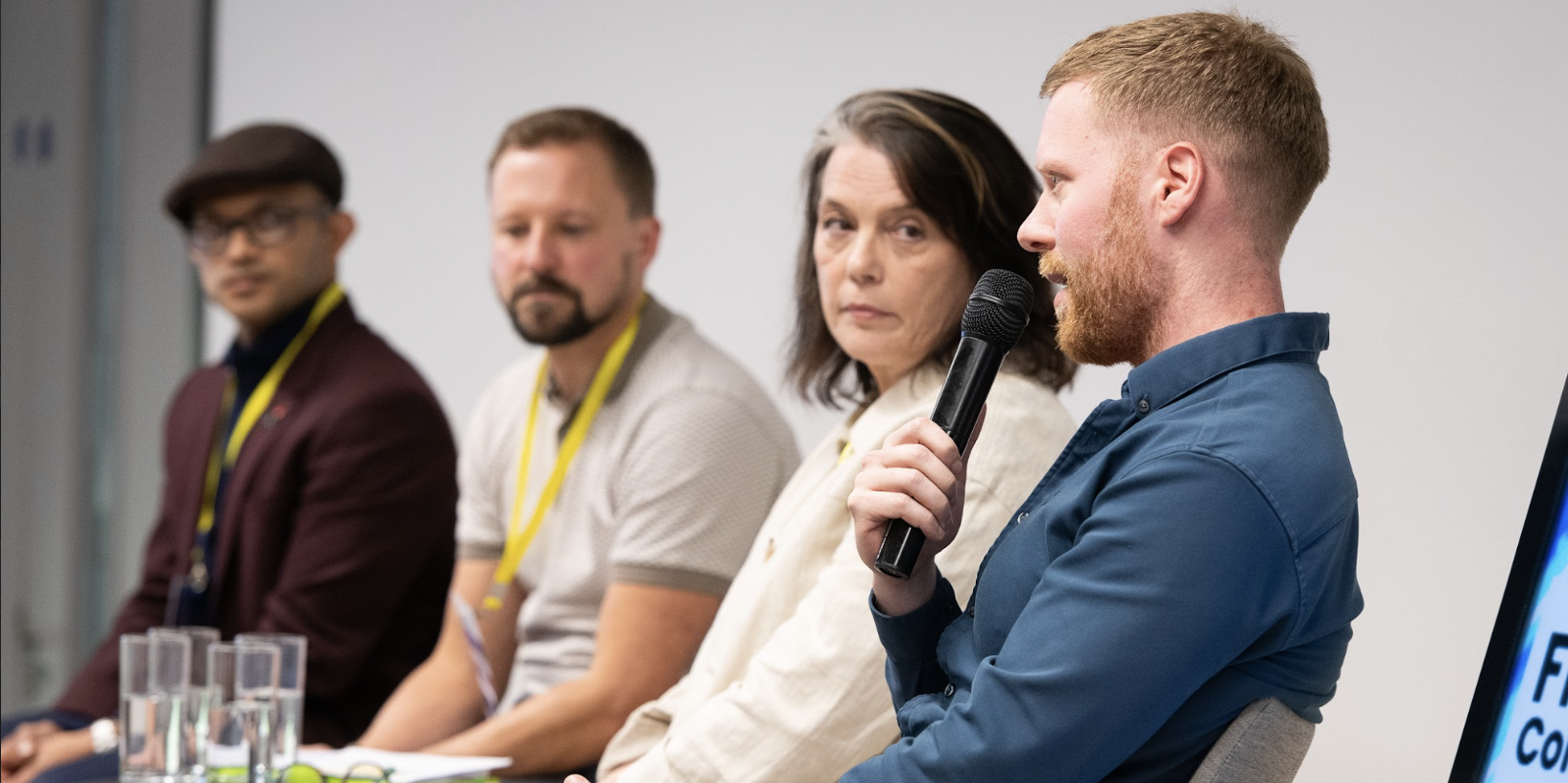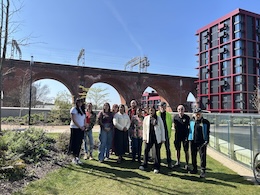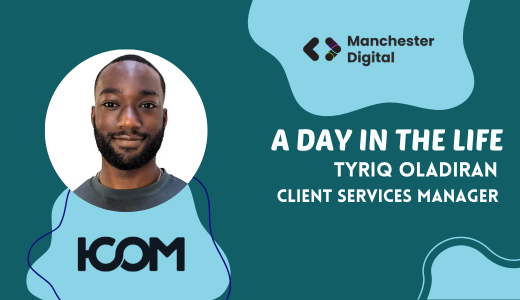
Sherin Mathew, CEO of AI Tech UK; David Gardner, head of fintech at TLT LLP; Elaine Mullan, head of marketing and business development at Corlytics and Alex Mackenzie, founder at Ryft.
As part of our Fintech Conference 2024, the question posed to our afternoon panel was ‘is Manchester the secret weapon of AI-powered fintech’? The panel was brilliantly hosted by David Avis, client services manager at AND Digital, and our panel brought together a cross section of experts from the fintech sector in Manchester. They were Sherin Mathew, CEO of AI Tech UK; David Gardner, head of fintech at TLT LLP; Elaine Mullan, head of marketing and business development at Corlytics and Alex Mackenzie, founder at Ryft.
The first question posed by our chair David was around the challenges to using AI in the fintech world, including the challenges around regulation.
Sherin, who has worked in AI for 20 years, said: “Everyone’s racing into AI but aren’t always aware of the regulations so they risk damage to their reputation.”
Elaine, who works in reg tech for a business that is headquartered in Dublin but is based in Manchester, explained, “While we’re seen significant advancements in AI-powered fintech, the regulation surrounding AI is still catching up. There are gaps in oversight and what hasn’t happened yet is as critical as what has. The lack of statutory regulation in the UK means the goalposts haven’t been set yet. We need clear forward-looking AI regulations to ensure innovation doesn’t outpace safety and trust.”
David Gardner said: “As a law firm, we’re positive about AI in fintech, but there are indeed lots of challenges. There are some very interesting problems to solve in order to safely and successfully implement AI solutions. We are also looking at how to use AI in three ways: within our own business, to improve our service to clients, and to advise them on their AI strategy and projects.”
Alex said, “We’re a classic fintech business so AI doesn’t fit into our core business model. However, we have been experimenting with generative AI. We tested it against one of our underwriters - the underwriter took eight hours to do a task, versus 15 minutes from the AI which was actually a better report. This is really a game changer for us as a business.”
Our chair David then asked the panel what skills gap needed to be addressed in Manchester to further power our fintech sector using AI.
Sherin explained, “The three key elements of successful AI are knowledge, leadership and governance, so we need further skills in all of these areas.”
Elaine compared Manchester to Dublin, which is a leading fintech city. “Dublin has four universities, which work closely with enterprise and have spawned a lot of fintech companies. However, as a city, it does have a problem with affordable housing. Manchester on the other hand has all the ingredients to rival Dublin - access to talent from three universities, a supportive ecosystem and a lower cost base - including housing and office space. Manchester can definitely build on this and have the success that Dublin has had.”
This led onto a really important question about how AI would affect the workforce of the future. David Gardner said, “Like the example Alex gave, AI can increasingly perform certain tasks a lot quicker, with similar or better quality outputs, at lower cost, enabling businesses to do more with less. However, of course this affects the team members who currently are responsible for these tasks. In thinking about AI deployment, we have focussed on how the people performing these roles can shift their focus to top-level advisory and relationship building tasks, supported and augmented by AI. This won’t always be the outcome, and there is a further challenge when generative AI means robots start to be capable of advising too!
“On top of this, another important point is during the Covid pandemic, many people have lost the opportunity and ability to work closely with others, to learn how to network and persuade. The younger workforce may struggle more with this, if relationship building is a key component of success.”
When the conversation moved onto whether Manchester is an attractive destination to build a business, Alex had some very interesting firsthand experiences. He explained, “When we did Series A funding round nine months ago, the question we always got asked from the US was how far we are away from London. We also found that our business valuation was lower due to us being in Manchester, so we opened a satellite office in London and changed our address purely to increase our valuation. We call it the Manchester tax.
“Overall, we’ve seen that there just isn’t enough investment coming here. I’ve seen some great fintech startups close their doors because they couldn’t get more funding. There’s definitely a gap here and Manchester does need more investment to grow as a fintech hub.”
The final question asked how Manchester can become a global leader. The unanimous opinion was around being ethical and having the development of AI regulation.
Sherin said: “There is a huge opportunity with AI if we take a different approach. Stick to our values and be honest. Do something others haven’t done. Showcase an honest, ethical and fully compliant fintech ecosystem.” David Gardner agreed that ethical and well-governed innovation can and should be aligned with success, not viewed as barriers to achieving this.
Elaine summed up her view: “AI is revolutionising fintech but the conversation needs to include its governance. We must strike a balance between fostering innovation and implementing the right regulations to protect consumers and business. Manchester is well-positioned to lead this conversation in the UK.”
Manchester Digital would like to say a huge thanks to all of the panel and our chair for their thoughtful and insightful comments. If you’d like to find out more about our upcoming events, keep an eye on our events calendar and follow our social media accounts.
You can also read the summary of the rest of our Fintech Conference 2024 here.









